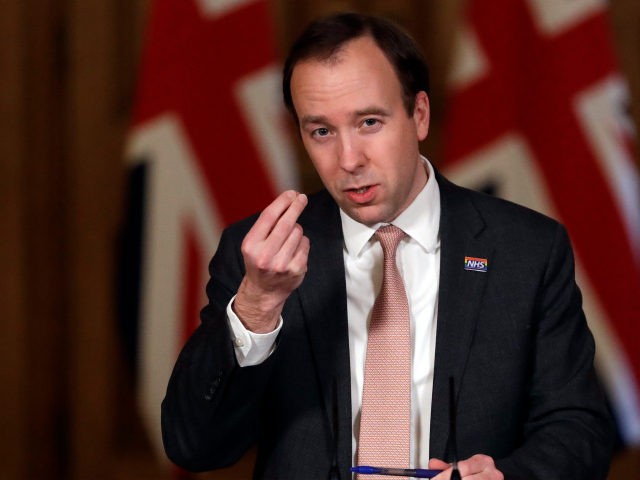Britain’s Health Secretary Matt Hancock has said that the British contract with AstraZeneca is stronger than the EU’s and “trumps” the bloc’s agreement. The minister made the remarks as Brussels threatens to block shipments of British-bought coronavirus vaccines.
On Thursday, leaders of the EU-27 are set to discuss an amendment to the bloc’s “vaccine transparency mechanism”, which could hold for vaccines and vaccine components from Europe produced under contract for other countries that are progressing well with their inoculation programmes, such as the United Kingdom. The measures could also punish countries that have not sent any doses to the EU.
The European Commission and its president, Ursula von der Leyen, have claimed that AstraZeneca and other drugs companies operating in Europe are obliged to prioritise EU orders even if supplies are under contract to nations outside of the bloc, such as Britain. The EU has already given approval for Italy to seize a shipment contracted to Australia, with von der Leyen saying the seizure would not be a one-off.
Britain’s health minister, however, said on Thursday that the EU is wrong to stop shipments to Britain from private companies, telling the Financial Times that the United Kingdom’s contract is legally stronger than the EU’s agreement.
“I believe that free trading nations follow the law of contracts,” Mr Hancock said, according to The Times, adding: “They have a ‘best efforts’ contract and we have an exclusivity deal. Our contract trumps theirs. It’s called contract law — it’s very straightforward.”
This is not the first time that the question of the nature of the EU’s arrangement with the drugs company has been raised. In January, AstraZeneca CEO Pascal Soriot also said that while his company had signed a contract with the British government, it could only commit to a “best effort” arrangement to deliver to the EU “because we are three months behind [the] UK”.
Mr Soriot also said that “the contract with the UK was signed first and the UK, of course, said ‘you supply us first’, and this is fair enough. This vaccine was developed with the UK government, Oxford and with us as well.”
Details reported by the media at the time appear to point to bureaucratic delays in Brussels signing the contract having a knock-on effect on continental production for EU vaccines.
Von der Leyen and other eurocrats have sought to accuse the drugs company of dishonest practice or punish Britain with its threat of an export ban, demanding that drugs made in the UK under British contract be sent to Europe.
Following a raid on a Belgian plant suspected of having sent EU doses to Britain in January, media reported that the Seneffe factory was simply slower, debunking the notion that there was a conspiracy to defraud the Europeans of their vaccines.
Brussels was left red-faced again this week when police raided a plant in Italy suspected of preparing to send doses to the UK — only to find imported Indian-made vaccines mostly due for distribution amongst the EU.
European countries are not reportedly fully backing the blockade, with the so-called doves — such as the Irish, Dutch, Belgians, and Swedes — likely fearing the consequences of a vaccine war.
The atmosphere also does not sit well with von der Leyen’s predecessor, the fierce Europhile Jean-Claude Juncker, who is concerned about the reputational damage to the trading bloc.
Mr Juncker told the BBC on Thursday: “I’m not a fan of this idea. This could create major reputational damage to the EU, who used to be the world free-trade champion.”
“I don’t think this is the right way to do it. We have to pull back from a vaccine war. Nobody understands why we’re witnessing such a stupid vaccine war. This cannot be dealt with in a war atmosphere. We are not in war and we are not enemies we are allies. We have special relations with Britain — there’s room for dialogue,” he added.

COMMENTS
Please let us know if you're having issues with commenting.